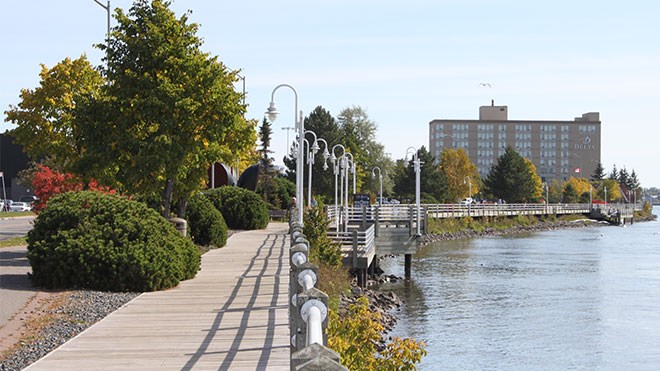In the face of global trends and changing demographics, the City of Sault Ste. Marie is taking a new look at its ability to adapt to change.
The city’s Community Adjustment Committee, comprised of 14 people representing different sectors, met for the first time in September. Its job is to come up with a strategy to combat the changes that are negatively impacting the Sault and its economy.
“Our vision is really to strengthen and support Sault Ste. Marie's resilience, its capacity to adapt to change, and to respond and recover more quickly when we are facing an adverse condition, or several adverse conditions,” said Gayle Broad, director of research at the Nordik Institute, who chairs the committee.
“What the best research tells us is that you can’t address the strengthening of your economy without addressing people’s needs and having a vibrant cultural community.”
The group, which is being funded with $200,000 from the Ministry of Training, Colleges and Universities, has until April, 2017, to complete its work.
Global trends impacting communities’ ability to “adapt and thrive” include things like technological advances, climate change, corporate restructuring and financing, and global migration, noted Broad.
In Sault Ste. Marie, recent strife at two of the city’s major employers — layoffs at Tenaris Algoma Tubes and an ongoing creditor protection process at Essar Steel Algoma — are contributing to the problem, but are by no means the only reasons behind the city’s current situation, Broad said.
“The actual number of people that were laid off at Essar Algoma this time was quite small; there were more people laid off at Tenaris,” she said. “But Tenaris is starting to recall people, and there's reason for some cautious optimism, I think, around Essar Algoma sorting its things out.”
Existing research in this area suggests that the city take a multi-pronged approach, Broad said, taking into account the four pillars of sustainability: cultural vitality, social equity, environmental sustainability, and economic diversity.
“They're all integrally linked together, and so when you're planning and trying to implement actions to address economic growth and diversity, you really have to be paying attention to the entire community, and you need to be identifying the strategies and the activities that will support that holistic approach,” Broad said.
Most of the committee’s work to date has revolved around getting itself organized, but Broad said community engagement will be the next step. The committee is also eager to engage community leaders from various sectors and keep them involved to foster “consensus building” through the process.
As part of that process, the committee will look at similarly sized communities to see what they’re doing and take away best practices to adapt them to the Sault’s needs, she noted.
“What is coming from other communities is very much that there’s no ‘silver bullet,’” Broad said. “It’s a combination of bringing things together in a holistic way, and it’s sharing that back and forth, breaking down silos and exchanging information.”
The committee plans to have a first draft of its strategic priorities completed by January, 2017, and a final report ready by the April 24 deadline. After that point, it will present to and seek approval from city council and other community organizations.




